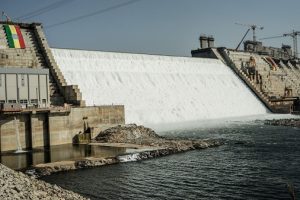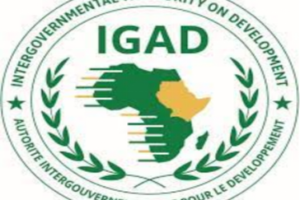BY FITSUM GETACHEW
Part one
We have observed many times in the past that countries with little democratic practice, tradition or culture and are trying to transit to a full-ledged democratic system are challenged by multiple factors, multiple experiences usually quite turbulent and concerning. It all depends on the consciousness and psychological preparedness of the people, citizens’ willingness or conviction to want to abide by certain rules and principles first and foremost because all the rest could be a direct or indirect consequence of this state of mine.
The kind of society that exists determines what kind of political parties, forces or organisations in general are present and active. What sort of political system is currently in vigor and how does this situation lead to a possible peaceful transition towards an established and accepted democratic opening? After all and in the final analysis it is the general atmosphere that enables or facilitates any kind of political discourses, debates and discussions to take place and get down to the mind and soul of the people. And from all these developments, usually an evolution that may take some time that a well-functioning and reliable political formula could emerge and help give birth to a democratic order.
If, on the other hand, the society is not ready to navigate well in these new waters then it is easy to see the whole system drowning into naught, risking to go down the drains. This is where the contradiction becomes an abyss and too hostile to accommodate any democratic opening.
In so called third world countries in general and in Africa in particular, we have seen during the past five, six decades that democratic orders have strived to be borne and where they were borne, they have faced various often severe challenges some of which knocked them out totally or at least blocked their growth. Consequently, citizens in these countries have been forced to suffer the negative fallouts. Usually there have been episodes of violence among factions which competed in political contests. Naturally the rivalry is often so bitter and tends to be extremist, what follows is usually a tentative show of force which in other words implies violence! And we know violence had rarely begot peace and stability or a democratic government.
Basically, the dispute and subsequent episodes of violence materialize because parties, leaders, the people in general fail to abide by the general rules that are meant to govern everyone indiscriminately. The confidence in the system is weak. There is little trust in the implementation of the laws and principles of the country in question. There is too much animosity between political parties and not healthy and restrained rivalry or competition as we usually see in the more advanced democracies. The rule of law is key and equality before the law is vital.
In the end, the strength and independence of our institutions are put to trial. Comparatively wherever such bodies are strong and independent the democratic process has often worked relatively better than those where these bodies were weak and not worth of trust.
The journey countries may undertake towards democracy has registered different outcomes in different countries. Some countries have come out fairly easily victorious and the people have lived up to the times and challenges. The parties engaged in the political battles have shown enough responsibility and maturity commensurate with the standard of consciousness of the people. The institutions have operated well and the mistakes committed were not so significant.
It is admitted that there are no perfect democratic and political systems anywhere in the world, just as there is nothing perfect in any man-made activities. Flaws are natural, but the readiness and willingness to rectify them is not always the norm in many societies and this becomes a huge problem to these countries in question.
This is not open for any different conclusion. But the basic point is how much effort has gone into building a workable system that takes care of the wish of the majority of the people without at the same time totally eliminating the relevance of the minority. Political analysts warn that this is a basic point to consider and not to miss in any democracy.
Over the past several decades, we have seen various countries in Africa engage in attempts to construct a democratic system that would enable form a more just and efficient as well as honest government. Progress has been slow but inevitable because mankind cannot be willing to be governed by a body they do not like or find oppressive.
Freedom and justice, equality and rule of law are among the basic principles on which these systems have tried to build upon so that a better society is built. There have been successes but there have also been serious setbacks and disappointments. And the results have often been even tragic. One can observe that these are manmade tragedies and with a bit of common sense and sense of purpose could have been readily avoided sparing the people from all sorts of negative consequences. But when we fail to do just that, how are we going to deal with our conscience? Certain rivalries among political parties or even political leaders have resulted in so much bloodshed in many countries.
We have seen that very often and they are still a sizeable part of many countries’ history. Many of the so called failed states or rogue states have groups or leaders with authoritarian and egoistic tendencies, not willing to compromise, not willing to sit down and negotiate with the other sides and spare the populations of these states from bloodshed and destruction. The idea of ‘mine is the only way’, ‘mine is the best idea’ and ‘mine is the most efficient system’ has led so many countries into disintegration; and we have so many living examples.
Similar mentality has been in reign even here because the intransigence of certain political parties or their leaders has driven the country to chaos! Communities have been forced to pay the harshest sacrifices. Look at what is happening! Is there any one ready to give priority to the needs and aspirations of the people rather than the quest for power and the ego of our leaders? We can see how some leaders are ready to gamble with the lives of poor people, usually the youths, and all this has been leading us to cry for the dead instead of celebrating the lives of brilliant youths capable of changing the world!
In Ethiopia as well there has been a long history of quest for a democratic order. While most African countries had a path to follow in the aftermath of the period of colonization aided by their ‘former bosses’ the path Ethiopia followed has been one of its own brand, different because it has a different historical background than the rest of most African countries. It had a long imperial reign which in all frankness had nothing to boast about in terms of democratic overtures. Then what followed was the deposition of the monarchy by a military junta facilitated by a students’ movement. This in turn however led to another form of authoritarian system, to another breed of authoritarianism, albeit with a new mask, a new façade. Even if people were apparently invited to have more participation in the system, the trap was always there, not letting them move as they would aspire to. There were too many restrictions that frustrated the choices of citizens. Hence there was a sense of hopelessness and despair.
The main decisions were never open for consultation to any political or social force that was not to the liking of the system. The military junta decided what it thought was right. It was evident that this had a clear contradiction with any system of democracy.
And then since the fall of the military rulers, three decades passed during which the people of this country were always in search of attempts to building a democratic order. The beginning seemed promising and full of hope but soon it was to be all façade and nothing that could be qualified as ‘democratic’.
THE ETHIOPIAN HERALD JULY 1/2021




